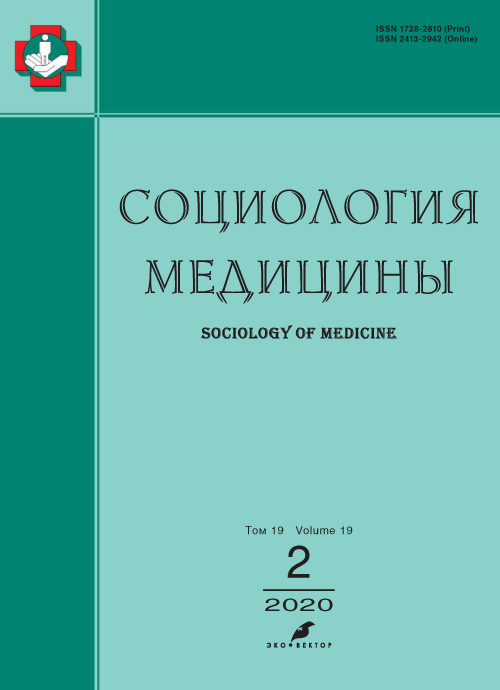Влияние стигматизации и стресса на психическое здоровье и качество жизни
- Авторы: Липай Т.П.1
-
Учреждения:
- Минский городской институт развития образования
- Выпуск: Том 19, № 2 (2020)
- Страницы: 109-111
- Раздел: Статьи
- URL: https://rjsocmed.com/1728-2810/article/view/71496
- DOI: https://doi.org/10.17816/2020-19-2-109-111
- ID: 71496
Цитировать
Полный текст
Аннотация
Социологический интерес к стигме был вызван публикацией «Стигма: заметки об управлении испорченной идентичностью» (Goffman, 1963).
Социальная стигматизация — в значительной степени стихийный процесс, но его развитие осуществляется в рамках определенных устоявшихся закономерностей социокультурного характера. Знание этих закономерностей позволяет прогнозировать возможную палитру последствий данного явления, предупреждать их наступление, нейтрализовывать негативное воздействие феномена на акторов социальных общностей.
Однако ощущается недостаток экспериментальных данных, подтверждающих объяснения феномена стигматизации и влияние стигматизации на качество жизни.
Ключевые слова
Полный текст
Об авторах
Татьяна Петровна Липай
Минский городской институт развития образования
Автор, ответственный за переписку.
Email: lipai@tut.by
ORCID iD: 0000-0002-9186-9806
канд. социол. наук, доцент, профессор кафедры управления и экономики образования
Белоруссия, МинскСписок литературы
- Ястребов В.С., Михайлова И.И., Гонжал О.А., Трущелёв С.А. Факторы стигматизации лиц с психическими расстройствами: методические рекомендации. Москва: Юстицинформ, 2009.
- Goffman E. Stigma: Notes on the Management of Spoiled Identity. New York: Prentice-Hall, 1963.
- Weiss M.G., Ramakrishna J. Stigma interventions and research for international health // Lancet. 2006. Vol. 367, N 9509. P. 536-538. doi: 10.1016/S0140-6736(06)68189-0
- Fife B.L., Wright E.R. The dimensionality of stigma: a comparison of its impact on the self of persons with HIV/AIDS and cancer // J Health Soc Behav. 2000. Vol. 41, N1. P. 50-67.
- Липай Т.П. Процесс стигматизации в условиях ситуации социальной нестабильности. В кн.: Российское общество и социальная сфера / Под ред. Е.Г. Пономаревой. Москва: Этносоциум, 2010. С. 453–471.
- Berjot S., Gillet N. Stress and coping with discrimination and stigmatization // Front Psychol. 2011. Vol. 2, P. 33. doi: 10.3389/fpsyg.2011.00033
- Lazarus R.S., Folkman S. Stress, Appraisal and Coping. New York: Springer, 1984.
- Harrell J.P., Hall S., Taliaferro J. Physiological responses to racism and discrimination: an assessment of the evidence // Am J Public Health. 2003. Vol. 93, N 2. P. 243-248. doi: 10.2105/ajph.93.2.243
- Ениколопов С.Н. Стигматизация и проблема психического здоровья. В кн.: Медицинская (клиническая) психология: традиции и перспективы (К 85-летию Юрия Федоровича Полякова). Москва: Московский городской психолого-педагогический университет, 2013. С. 109–121.
- Markowitz F.E. The effects of stigma on the psychological well-being and life satisfaction of persons with mental illness // J Health Soc Behav. 1998. Vol. 39, N 4. P. 335-347.
- Kim M.A., Yi J. Life after cancer: how does public stigma increase psychological distress of childhood cancer survivors? // Int J Nurs Stud. 2014. Vol. 51, N 12. P. 1605-1614. doi: 10.1016/j.ijnurstu.2014.04.005
Дополнительные файлы







